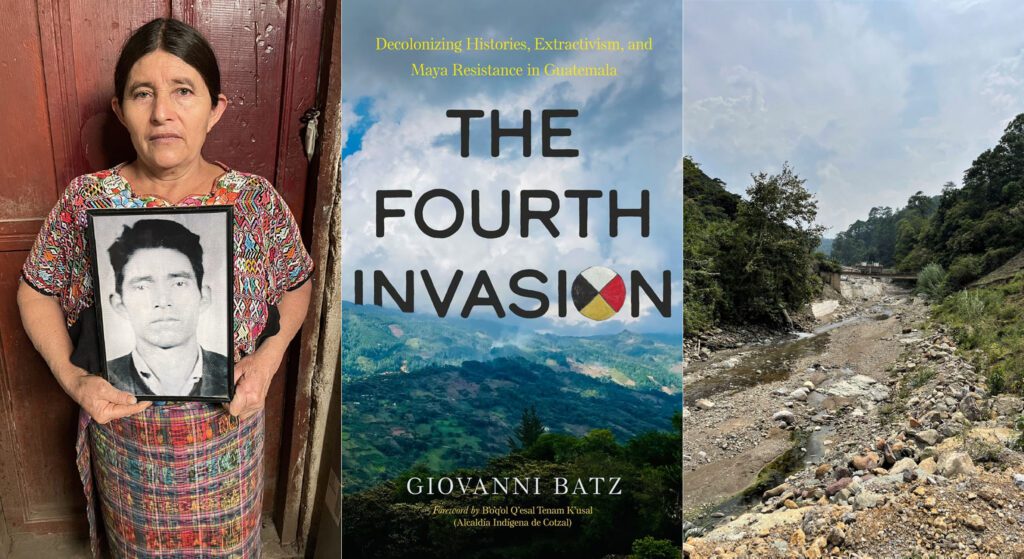Born in Los Angeles to Guatemalan parents, Giovanni Batz was the first in his family to attend college. Studying political science at California State University Northridge, he started researching politics and war in Central America and the Maya diaspora. The work became the basis of his masters in Latin American studies and doctoral research in social anthropology at the University of Texas at Austin.
And now, culminating more than a decade of ethnographic research, it’s the basis of his new book, “The Fourth Invasion: Decolonizing Histories, Extractivism, and Maya Resistance in Guatemala” (University of California Press). In it, Batz, today an assistant professor in the Department of Chicana and Chicano Studies at UC Santa Barbara, argues that present-day mining and hydroelectric projects, among other extraction-based industries spearheaded by foreign companies, are a continuation of colonial invasions that have displaced and destroyed the country’s Indigenous territories since 1524.
Batz’s work is “critical for understanding how Guatemalan Indigenous peoples have encountered multiple invasions for more than five centuries, including by the contemporary extractivist corporations that are generating tremendous profits as well as massive environmental destruction,” said colleague Ralph Armbruster-Sandoval, a professor of Chicana and Chicano studies at UCSB. “Indigenous people, particularly Ixil communities, have organized and resisted. This movement parallels other Indigenous movements across the Americas that are focused on environmental and social justice.”
On a research fellowship in 2011, Batz traveled to the town of Cotzal, located in the Western Highlands in Guatemala, where the Ixil Maya community was fighting the construction of the Palo Viejo hydroelectric plant being built by Enel Green Power, a corporation based in Italy. Locals referred to the project and other extraction-based industrialization as the “new invasion” or “fourth invasion,” Batz said. The Central American county’s first three invasions, he explained, were the Spanish colonization of the early 16th century, the rise of the plantation economy during the late-19th and early-20th centuries and the state-sponsored genocide during the Guatemalan Civil War (1960-1996).
Source link : http://www.bing.com/news/apiclick.aspx?ref=FexRss&aid=&tid=673d0fd57b9449dab9327d573b6047b1&url=https%3A%2F%2Fnews.ucsb.edu%2F2024%2F021677%2Fguatemalas-history-colonialism-genocide-extractionist-industries&c=1832597686050487507&mkt=en-us
Author :
Publish date : 2024-11-18 11:01:00
Copyright for syndicated content belongs to the linked Source.
